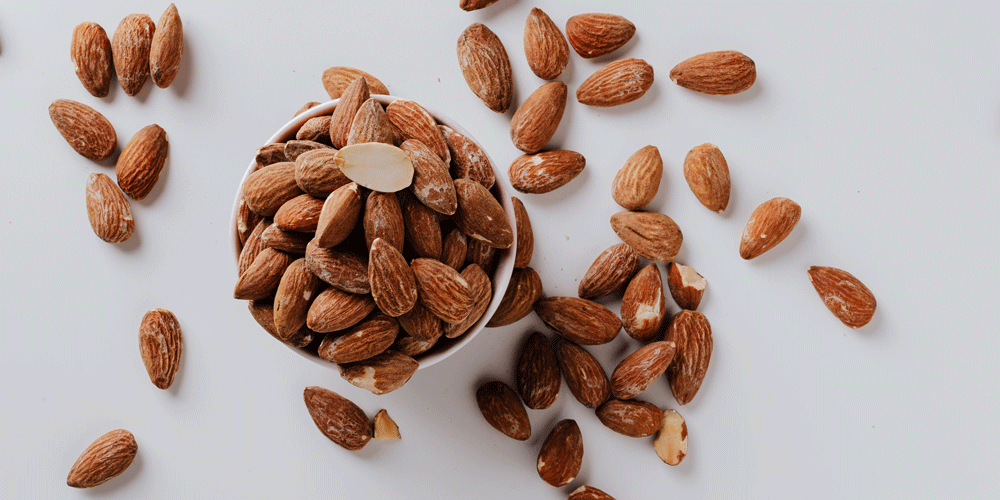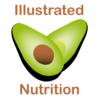Are you getting enough protein?

Are you getting enough protein? Diet culture is pretty noisy surrounding the macronutrient protein, which makes sense. Protein is an essential macronutrient that your body needs in order to function properly. It plays a role in almost every process that goes on in your body, from building muscle tissue to repairing cells. Protein also can be marketed through supplements, each one claiming to be the magic bullet for building muscle and staying lean. And where there is money, there is misinformation. A marketable necessity? Let the games begin. Today, we'll try to clear up some of this confusion and answer the questions you have in the diet culture scene.
What is protein?
Protein, along with carbohydrate and fat, is one of three macronutrients essential for the human body. It is made up of amino acids, which are the building blocks of protein. There are 20 different amino acids that can be used to make protein. Nine of them, the essential amino acids (EAAs) are considered "essential" because your body cannot produce them. This means that you must get them from your diet.
And if you're a super-nerd (you're in good company here), these nine EAAs are listed here: histidine, isoleucine, leucine, lysine, methionine, phenylalanine, threonine, tryptophan, and valine.
Amino acids are critical building blocks of muscle and repair. So getting enough on a daily basis is crucial for maintaining and growing muscle mass, increasing your metabolism, and leaning down your body.
Different Proteins
Of course, different kinds of proteins work in different ways. Proteins that have all nine EAAs are considered complete proteins, while other proteins may contain one or more amino acids in other combinations but are considered incomplete because they lack all nine EAAs. However, being incomplete does not mean useless, especially when paired with other sources of protein.
You may have come across these proteins in the sports supplements section of your health foods store. Let's go over the basics.
Branched-Chain Amino Acids (BCAAs)
- This is an incomplete protein found in dairy and meat. It is a fast-acting protein that essentially goes straight to the muscle, preventing muscle breakdown and encouraging quick repair.
Creatine powder
- This is another incomplete protein with a unique purpose. Creatine increases your energy output during workouts, helping you work out longer and harder.
Whey protein
- This is a complete protein that is found in milk. It is considered a "fast-acting" protein because it is easily absorbed by the body. Whey protein is often used by athletes and bodybuilders to help build muscle.
Pea protein
- Pea protein is made from yellow peas and is also a vegan-friendly protein option. Like soy protein, it is a complete protein.
Casein protein
- This is another complete protein that is found in milk. It is a "slow-acting" protein, which means that it takes longer for the body to absorb it, providing your muscles a steady flow of amino acids over time. Casein protein is often taken before bed because it can help to prevent muscle breakdown during sleep.
Soy protein
- Soy protein is made from soybeans and is a vegan-friendly protein option. It is a complete protein, which means that it contains all 9 essential amino acids.
Hemp protein
- Hemp protein is made from hemp seeds and is another vegan-friendly protein option. It is a complete protein and is also a good source of fiber.
What protein does (Why we need it)
Protein plays a variety of roles in the body, but some of the most important ones are:
- Building and repairing muscle tissue
- Regulating hormones
- Boosting immunity
- Carrying oxygen in the blood
- Keeps you full/satiated
As you can see, protein is involved in many different and important processes in the body. This is why it is so important to make sure that you are getting enough protein in your diet.
How much protein does your body really need?
Minimum baseline for protein
The National Academy of Medicine (seems legit) recommends just over seven grams of protein for every 20 pounds of body weight.
To figure out what that means for you, take your current body weight and divide it by 20. Then, multiply that number by 7: (Body weight/20) x 7 = Daily grams of protein
I'm going to call this your minimum baseline for protein.
No maximum for protein
But the amount of recommended protein changes if you're trying to lean down while maintaining muscle mass. Some coaches recommend consuming one gram of protein per pound of weight on your body. So a 160-pound woman would need to consume 160 grams of protein. And increase that number if you are over the age of 35 and/or regularly exercising.
What we do know is that your body will convert protein in excess into carbohydrates to be burned as energy, which means, if you consume more than your body needs, your body is a smart guy and takes care of it.
On the flip side, you might have trouble reaching higher protein counts solely using food: 160 grams of protein is about 22 ounces of salmon, so pop open the tartar sauce and get moving! #seemsfishy
You can see why body builders and fitness enthusiasts favor supplemental shakes. Protein supplements are a meal-prep-free, carefully formulated option to achieve your protein macro goals while only minimally adding extra fats and carbs to your diet.
Intuitive eating wins again
My recommendation is to use these numbers as a gauge but listen to your body. One macro calculator I used recommended I consume upwards of 200 grams of protein daily. Whew...I did it for a week and felt awful (and was blowing through expensive protein supplements as if it was water). Maybe that recommendation would work for someone else, but for me it was too much, so I eased off.
Good sources of protein
There are many different foods that contain protein. Some of the best sources of protein are:
- Meat (beef, chicken, pork, etc.)
- Fish (salmon, tuna, trout, etc.)
- Eggs
- Dairy (milk, cheese, yogurt)
- Beans and legumes (chickpeas, lentils, black beans, etc.)
- Nuts and seeds (almonds, pumpkin seeds, sunflower seeds, etc.)
- Soy products (tofu, tempeh, edamame)
- High quality protein supplements
Supplements are, by definition, supplemental. They are meant to support a healthy and nutritious diet, not to create one. When possible, defer to naturally-occurring protein found in whole foods and add supplemental shakes to support your goals.
